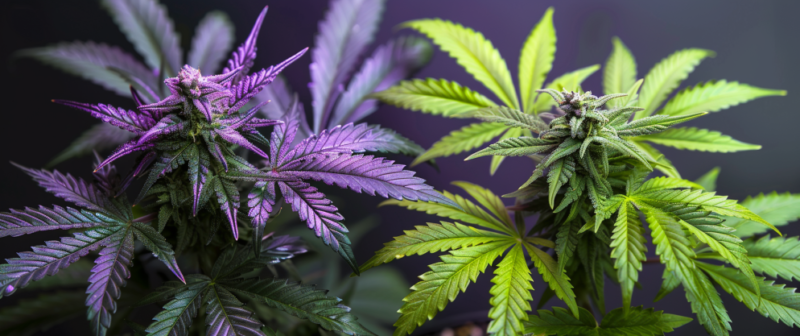Wondering how long does Delta 9 stay in system and how it can impact drug tests?
We discuss everything you need to know about Delta 9, including its duration in the body, potential effects, and ways to detoxify your system.
Find out the answers to frequently asked questions and learn how to take precautions when using Delta 9 THC.
Key Takeaways:
- Delta-9 THC can stay in your system for up to 30 days, depending on various factors such as metabolism, frequency of use, and body fat percentage.
- Delta-9 THC can cause short-term effects such as increased heart rate, decreased coordination, and altered perception, as well as long-term effects like memory and learning impairments.
- To speed up the elimination of Delta-9 THC from the system, natural methods like exercising, staying hydrated, and eating a healthy diet can be helpful. However, there is no guaranteed way to flush it out faster.
What Is Delta 9?
Delta 9, also known as Delta-9-tetrahydrocannabinol (THC), is a prominent cannabinoid found in cannabis plants.
Delta 9 THC is largely responsible for the psychoactive effects associated with consuming cannabis. It binds to cannabinoid receptors in the brain and body, particularly the CB1 receptors in the central nervous system.
This interaction triggers a series of neurological responses, leading to the well-known ‘high’ sensation. Delta 9 THC has been studied for its potential therapeutic properties, such as pain relief, appetite stimulation, and anti-nausea effects.
The potency of Delta 9 THC can vary depending on the strain of cannabis and the method of consumption, with smoking and vaporizing typically resulting in quicker and more intense effects.
How Long Does Delta 9 Stay in Your System?
The duration of Delta 9 in your system depends on various factors like metabolism, ingestion method, and frequency of use. Here’s a breakdown of how long Delta 9 THC typically stays in different bodily systems:
- Blood: Up to 6 hours after use
- Saliva: Up to 24-72 hours after use
- Urine: Up to 3-30 days after use
- Hair: Up to 90 days or even longer after use
Metabolism plays a crucial role in how quickly your body breaks down and eliminates Delta 9 THC. Individuals with faster metabolisms tend to process and clear THC more rapidly compared to those with slower metabolisms, leading to shorter detection times.
The method of ingestion can also impact how long Delta 9 stays in your system. Smoking or vaping cannabis typically results in a quicker onset of effects but shorter duration of presence, while edibles can lead to a delayed onset but prolonged presence in the body.
Frequency of use is another key determinant; the more frequently you consume Delta 9 THC, the longer it may take for your body to fully clear it. Regular users often have higher levels of THC stored in their system, extending detection windows. Understanding these factors can help individuals make informed decisions about their cannabis consumption.
What Factors Affect the Duration of Delta 9 in Your System?
Several factors influence the duration of Delta 9 in your system, including metabolism, body mass index, genetics, ingestion method, and frequency of consumption.
Research suggests that individuals with certain genetic variations may metabolize THC differently, impacting how long it stays in their system. Factors like body mass index can influence the distribution and storage of THC in fat cells, potentially prolonging its presence.
What Are the Effects of Delta 9 on the Body?
Delta 9 THC interacts with the body’s endocannabinoid system, leading to various effects on health and well-being.
When Delta 9 THC enters the body, it binds to cannabinoid receptors, particularly CB1 and CB2, found in the endocannabinoid system.
This interaction may modulate neurotransmitter release, impacting functions like mood regulation, pain perception, and appetite. It may affect memory and cognition due to its influence on the central nervous system.
The activation of these receptors by THC triggers a cascade of biochemical reactions that regulate homeostasis in the body.
Various studies suggest that Delta 9 THC may have therapeutic benefits, such as pain relief and anti-inflammatory properties, but its psychoactive effects must also be considered.
Can Delta 9 Cause a High?
Delta 9 THC is known to induce euphoria or a ‘high’ when consumed in certain doses.
The moment Delta 9 THC enters the body, it interacts with the brain’s endocannabinoid system, specifically the CB1 receptors, triggering a cascade of chemical reactions that result in altered perception, mood, and behavior.
This alteration in brain function is what leads to the sensation of euphoria or the feeling of being ‘high’. The psychoactive effects of Delta 9 THC can vary depending on the individual’s tolerance, metabolism, and method of consumption.
Some users may experience heightened sensory perception, relaxation, or even bursts of creativity, while others may feel anxious or paranoid.
What Are the Short-term Effects of Delta 9?
Short-term effects of Delta 9 THC may include relaxation, altered perception, and in some cases, heightened anxiety.
Relaxation is a common immediate response, as THC binds to cannabinoid receptors, influencing neurotransmitter release and creating a sense of calm. Altered perception is a hallmark of its psychoactive properties, affecting sensory experiences.
It’s important to note that for some individuals, especially those predisposed to anxiety, THC may trigger feelings of anxiety or paranoia as it impacts neural pathways associated with stress response.
What Are the Long-term Effects of Delta 9?
Long-term use of Delta 9 THC may have implications on certain diseases, stress levels, and overall well-being.
For those who frequently consume Delta 9 THC, there is a growing concern about its potential impact on various health conditions. Some studies suggest a potential link between prolonged usage of Delta 9 THC and an increased risk of developing respiratory diseases such as bronchitis.
Excessive intake of Delta 9 THC has been associated with heightened levels of anxiety and decreased coping mechanisms for stress. It is essential to prioritize stress management techniques and regularly monitor any changes in health indicators when incorporating Delta 9 THC into one’s routine.
How Does Delta 9 Affect Drug Tests?
Delta 9 THC can be detected in drug tests such as urinalysis and blood tests due to its presence in bodily fluids.
Urinalysis is a common method used to detect the presence of Delta 9 THC in the body. When consumed, THC is broken down into metabolites that can be detected in urine samples.
Similarly, blood tests can also reveal the presence of Delta 9 THC by analyzing the concentration of the substance in the bloodstream. These tests are crucial for monitoring drug use and ensuring compliance with regulations.
What Types of Drug Tests Can Detect Delta 9?
Saliva testing is one of the methods used to detect the presence of Delta 9 THC in the system through oral fluids.
When an individual undergoes saliva testing for Delta 9 THC, a sample of oral fluid is collected typically by swabbing the inside of the mouth. The collected sample is then analyzed to determine the concentration levels of Delta 9 THC present.
This non-invasive method has gained popularity due to its ease of collection and quick results. Results from saliva testing for Delta 9 THC can provide valuable information about recent cannabis use, making it a valuable tool for drug testing purposes.
How Long Can Delta 9 Be Detected in a Drug Test?
The detection window for Delta 9 THC in drug tests varies, but generally ranges from a few days to several weeks based on factors like metabolism and dosage.
As said, a person’s metabolism should be considered. Those with slower metabolism may have an extended detection period of its presence, lasting several weeks.
The dosage of THC consumed can impact the duration of detection in drug tests. Higher doses typically lead to a longer detection window as the body takes more time to metabolize and clear out the substance.
How to Speed Up the Elimination of Delta 9 from the System?
To accelerate the removal of Delta 9 THC from the system, one can consider natural detoxification methods and regular exercise.
Engaging in activities that induce sweating, such as cardio workouts or hot yoga, can aid in flushing out toxins through the skin. Additionally, hydration plays a crucial role in supporting the body’s natural detox processes by promoting kidney function and urine production.
Including foods rich in antioxidants like berries, leafy greens, and citrus fruits in your diet can also support liver detoxification processes. By combining these efforts with regular exercise, you can help your body eliminate Delta 9 THC more efficiently.
What Are Some Natural Ways to Detoxify the Body from Delta 9?
A healthy diet rich in antioxidants, hydration through drinking water, and regular exercise can aid in detoxifying the body from Delta 9 THC.
Antioxidants found in fruits and vegetables help combat oxidative stress caused by THC consumption, supporting the body’s natural detoxification processes. Drinking water helps flush out toxins through urination, aiding in the removal of THC metabolites from the system.
Regular physical activity promotes sweating, which can also help expel THC through the skin’s pores. Exercise boosts metabolism, aiding in the breakdown and elimination of THC stored in fat cells.
Are There Any Products or Methods to Help Eliminate Delta 9 Faster?
Certain detox products and methods claim to speed up the elimination of Delta 9 THC by boosting metabolism or facilitating excretion.
These detox products often contain a combination of natural ingredients that are believed to enhance the body’s natural detoxification processes.
Detox products for THC may also stimulate liver function, which plays a crucial role in metabolizing and breaking down THC compounds. They may support kidney function, aiding in the elimination of THC through urine.
Some detox methods include special diets, exercise routines, and specific hydration practices to promote the body’s ability to flush out toxins more efficiently.
What Precautions Should Be Taken When Using Delta 9?
Using Delta 9 THC requires caution due to potential risks, especially when interacting with certain medications.
It is essential to consult with a healthcare professional before incorporating Delta 9 THC into your routine, especially if you are taking any medications.
Risks associated with Delta 9 THC use may include increased heart rate, memory issues, and potential negative impacts on mental health. Individuals with a history of mental health conditions should be particularly vigilant.
Interactions between Delta 9 THC and certain medications can lead to adverse effects, such as changes in blood pressure, increased sedation, or altered metabolism of the drugs.
Are There Any Risks or Side Effects of Using Delta 9?
High doses of Delta 9 THC have been linked to increased heart rate, paranoia, and panic attacks in some individuals. Proper ingestion methods, such as micro-dosing or using lower potency products, can help mitigate these risks. It’s essential to start with a low dose and gradually increase to find the right balance that works for you.
Ingesting Delta 9 THC through edibles can have longer-lasting effects compared to inhalation methods like smoking or vaping. Individuals with a history of anxiety disorders may be more susceptible to experiencing heightened anxiety levels when consuming Delta 9 THC.
FAQs
1. How long does delta 9 stay in the system?
Different factors can affect how long delta 9, also known as THC, stays in the system. Generally, it can be detected in urine for up to 30 days, in blood for up to 2 weeks, and in saliva for up to 72 hours. However, it can vary for each person depending on their metabolism, frequency of use, and other factors.
2. Can delta 9 be detected in a drug test?
Yes, delta 9 can be detected in drug tests, especially in urine, blood, and saliva tests. It is important to note that even a small amount of THC can be detected, so it is best to refrain from using it if you know you will be taking a drug test.
3. How does delta 9 affect the body?
Delta 9 is the psychoactive compound found in marijuana, which means it can alter brain function and cause a feeling of euphoria. It can also affect memory, coordination, and perception. Long-term use of delta 9 can also lead to potential health risks.
4. What are the ways to flush out delta 9 from the system?
While there is no foolproof way to completely flush out delta 9 from the system, there are some things you can do to potentially speed up the process. Drinking plenty of water, exercising, and eating a healthy diet can help in eliminating THC from the body.
5. Can secondhand smoke exposure result in a positive drug test for delta 9?
It is highly unlikely that secondhand smoke exposure can result in a positive drug test for delta 9. While it is possible for trace amounts of THC to be detected in a person’s system after being exposed to secondhand smoke, it is not enough to cause a positive result.
6. Is it safe to drive after using delta 9?
No, it is not safe to drive after using delta 9. Delta 9 can impair coordination, reaction time, and judgment, which can make driving dangerous. It is important to wait until the effects wear off completely before operating any machinery or driving.
Visit IndaCloud for more products to choose from.


